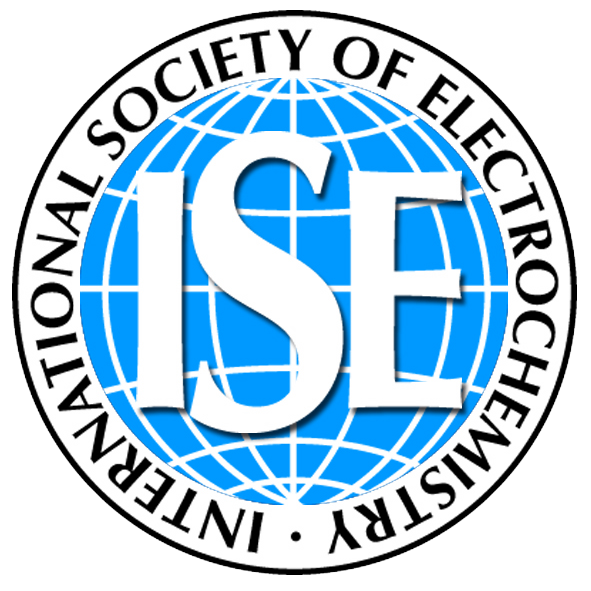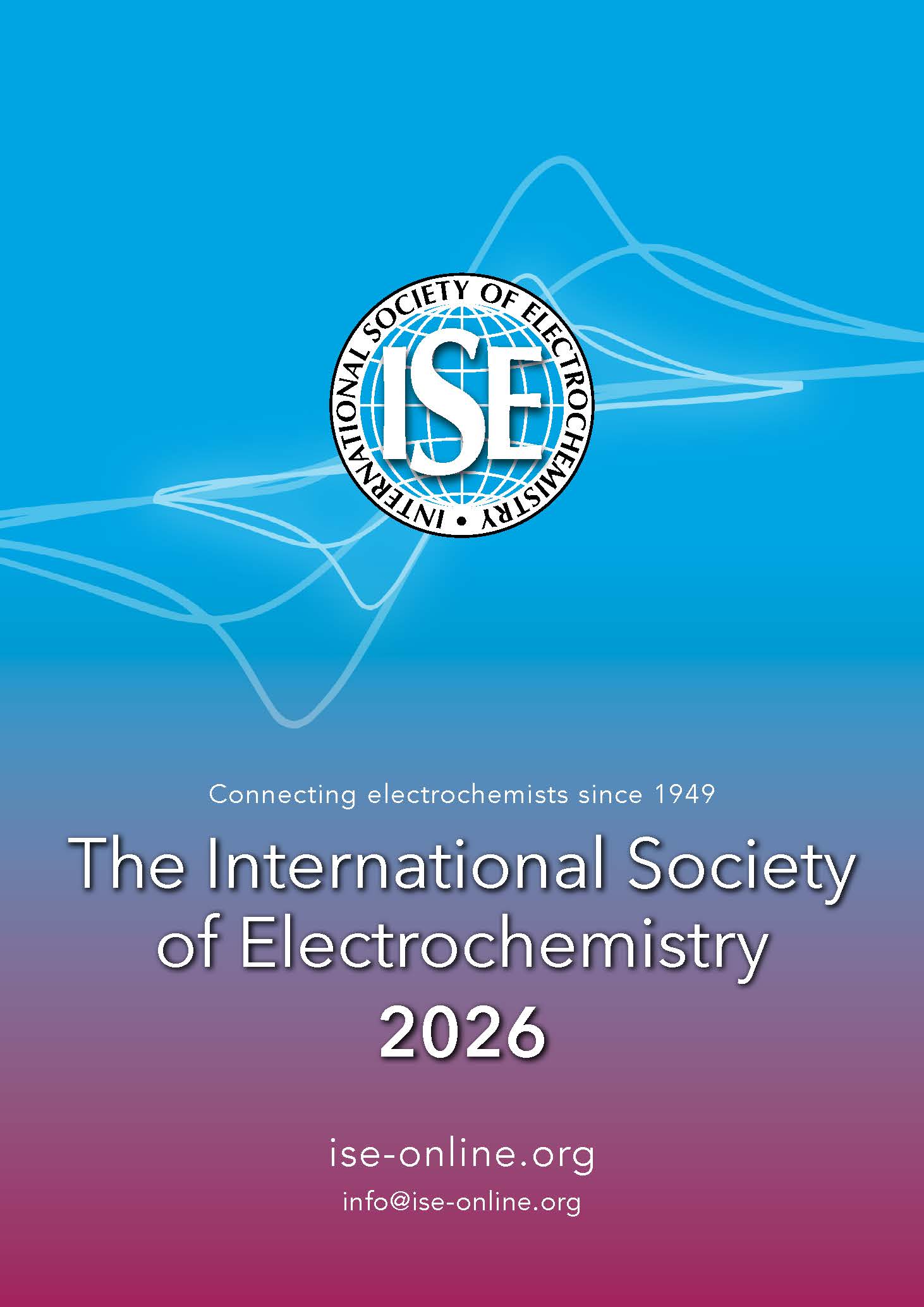- Home
- Venue & Location
- Important Dates
- Organizing committee
- Scientific program
- Symposia
- Plenary Talks
- Tutorials
- Abstract Submission
- Registration
- Visa Invitation Letter
- Registration Fee Waiver
- Accommodation
- Excursions
- Exhibitors & Sponsors
- Satellite Meetings
Sydney, Australia – Electrochemistry for the New World
You are warmly invited to the 77th Annual Meeting of the International Society of Electrochemistry which will be held in Sydney, Australia from 6 to 11 September 2026.
Sydney is a vibrant multicultural city with extraordinary natural beauty with its deep water harbour set within a yellow sandstone basin, historic convict precincts, skyscapers designed by world renowned architects and stunning beaches with the weather to match. All this is closely integrated with the city centre where the meeting will be held. The meeting venue is the brand new International Convention Centre Sydney (ICC Sydney) situated on the water at the Darling Harbour restaurant precinct where Wildlife Zoo Sydney and the Sydney Aquarium are also located. Just a short walk or ferry ride away is the iconic Sydney Opera House and Sydney Harbour Bridge. Slightly further afield is the Botanic Gardens, harbour and ocean beaches, and national parks within the city including the hikers heaven of the Blue Mountains and Royal National Park (the world’s second National park). A little over an hours flight are other major cities including Melbourne and Adelaide – where satellite meetings are planned – and the Tasmanian World Heritage wilderness.
Sydney is a technology leader, being the 7th top digital city in the world, the home of major technology based companies such as the hearing implant pioneer Cochlear and the sleep company ResMed. Sydney also has the top ranked start-up ecosystem in the southern hemisphere. The conference is held within 6 km from three of the world’s top ranked universities with world leading programs in solar cell technology, quantum computing and medical technologies to ensure the local scientific community is keen to engage with our ISE visitors. We welcome to Sydney in 2026!
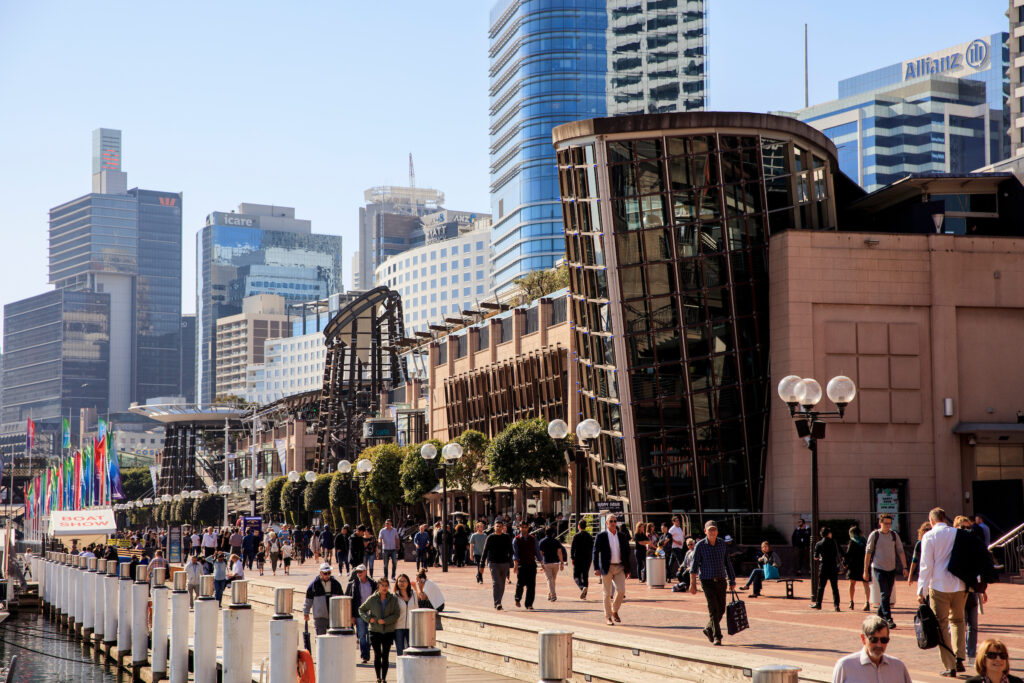
Venue and Location
The meeting will be held at the International Convention Centre Sydney (ICC Sydney), a new major conference center in Darling Harbour, Sydney Australia – https://iccsydney.com.au.
It is located in the city center directly on Sydney Harbour and is a restaurant and tourist precinct. Many hotels can be easily reached by a short walk. The conference centre is only a 10 minute walk from both Central and Townhall stations. There is also a huge car park at the conference center.
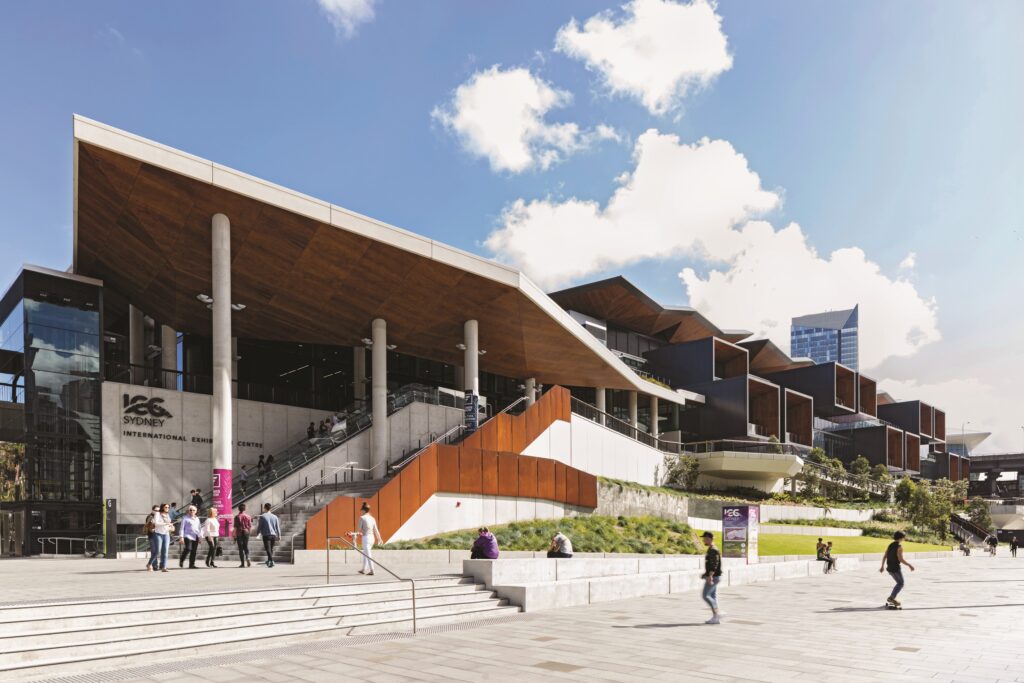
Climate
The conference will be held during spring in Sydney with the temperature rather mild being between a typical minimum of 11°C at night and a maximum of 21°C during the day.
Transportation
Airport: Kingsford Smith International Airport (SYD) is the largest international
hub of air traffic in Australia which is reached nonstop from the west coast of the Americas, Asia, Middle East and Africa and with one stop from Europe.
Sydney Airport connects to 43 international destinations and 46 domestic destinations. The airport is just 11 minutes from Central Station by train and 24 minutes by taxi.

Important Dates
- Opening date for abstract submission: 1 December 2025
- Opening date for registration: 10 March 2026
- Deadline for abstract submission: 28 March 2026
- Registration deadline for presentation(s): 28 May 2026
- (All presenting authors of accepted abstracts are expected to register. Abstracts without a registered presenting author will be withdrawn from the event on 29 May 2026)
- Conference begins: 6 September 2026
Organizing Committee
Justin Gooding (Sydney – Co-Chair)
Debbie Silvester-Dean (Perth – Co-Chair)
Nick Birbilis (Melbourne)
Ruth Knibbe (Brisbane)
Katharina Krischer (Munich)
Plamen Atanassov (Irvine)
Taek Dong Chung (Seoul)
Monica Santamaria (Palermo)
Francesca Soavi (Bologna)
Local Organizing Committee
Ruth Knibbe (Brisbane)
Kaye Kang (Sydney)
Cameron Bentley (Melbourne)
Saimon Silva (Melbourne)
Jessica Allen (Newcastle)
Wesley Dose (Sydney)
Scientific Program
The scientific program offers Pleanary Lectures, Symposis, Tutorials related to the following fields of electrochemistry:
- Electroanalytical chemistry
- Electrocatalysis
- Batteries
- Fuel cells
- Corrosion
- Single entity electrochemistry (molecular, analytical, physical)
- Scanning Probe Electrochemical Microscopy
- Energy
- Ammonia Synthesis
- Hydrogen generation
- Electrochemiluminescence
- Photoelectrocatalysis
- Minerals electrochemistry
- Ionic liquid electrochemistry
- Liquid/liquid electrochemistry
- Solar cells
- Microbial electrochemical systems
- Electrochemistry for medicine/point of care
- Devices/manufacturing
- Wearables
Summary of Symposia
Table of Contents
- Symposium 1: Electrochemistry at the interface: From liquid-liquid to point-of-care devices
- Symposium 2: Electrochemical biosensors: The new world technology
- Symposium 3: Bioelectrochemistry: Scientific discoveries and applications
- Symposium 4: Understanding reaction mechanisms and degradation of electrocatalysts for Power-to-X
- Symposium 5: Aqueous-based batteries and high-power devices
- Symposium 6: Advances in hydrogen production and utilisation
- Symposium 7: Novel materials for lithium and beyond lithium batteries
- Symposium 8: Progress in surface modification and corrosion mitigation
- Symposium 9: Fabrication and characterisation of electroactive nanostructured materials
- Symposium 10: Sustainable electrochemistry and systems to protect water and the environment
- Symposium 11: Scale-up of electrochemical systems
- Symposium 12: Key challenges in molecular electrocatalyst platforms and surface reactivity
- Symposium 13: Molecular electronics and electrochemistry: From fundamentals to function and application
- Symposium 14: In situ and operando methods for characterising electroactive materials and interfaces
- Symposium 15: Model electrodes to study nanoscale phenomena in electrocatalysis
- Symposium 16: General session
Symposium 1: Electrochemistry at the interface: From liquid-liquid to point-of-care devices
Sponsored by: Division 1: Analytical Electrochemistry
The symposium will focus on recent developments in electrochemical methods using biphasic systems, such as potentiometric ion-selective electrodes and polarised liquid-liquid interfaces, with applications in analytical, environmental, physical, pharmaceutical, and biomedical research. It will address current research, technological progress, and future challenges in the field. As electrochemistry at the polarised liquid-liquid interface is typically confined to the laboratory, we aim to incorporate single-use sensors and point-of-care devices, providing a platform for new ideas that bridge the two fields. While traditional electroanalytical methods continue to advance, there is an increasing demand for single-use sensors and point-of-care diagnostics that can function autonomously for extended periods with minimal sample handling and maintenance.
KEYWORDS: Electrochemistry at the liquid-liquid interface, ITIES, Ion transfer voltammetry • Biomembrane-mimic interfaces • Potentiometric ion-selective electrodes • Smart and low-cost sensors, 3D-printed sensors, sensor arrays, and wearable technologies • Electroanalysis for Point-of-Care Applications.
Symposium Organizers: Emilia Witkowska Nery, Institute of Physical Chemistry, Polish Academy of Sciences, Poland; Micheál D. Scanlon, University of Limerick, Ireland; Damien Arrigan, Curtin University, Australia; Yang Liu, James Cook University, Australia; Jeffrey Dick, Purdue University, USA.
Symposium 2: Electrochemical biosensors: The new world technology
Sponsored by: Division 1: Analytical Electrochemistry & Division 2: Bioelectrochemistry
Biosensors utilise the superior recognition capabilities of biological systems and combine them with a wide range of physicochemical transducers to enable simple and user-friendly diagnostic systems for an increasingly diverse range of applications, enhancing our daily lives. The symposium focuses on the latest advances in electrochemical biosensors, aiming to provide practical solutions to the challenges of the modern world. From environmental analysis to healthcare, electrochemical biosensors can …
KEYWORDS: New biorecognition strategies in electrochemical detection • Nanomaterials, novel transducers, sustainable and affordable biosensors • Cell analysis and cancer-cell detection • Lab-on-a-chip, multiplexed and implantable devices • Biosensors for environmental, agro-food, security, forensic, and healthcare applications • AI and machine learning in biosensors • Translation and commercialisation of biosensors
Symposium Organizers: Saimon Moraes Silva, La Trobe University, Australia; Gabriel Negrão Meloni, University of São Paolo, Brazil; Felipe Conzuelo, Nova University Lisbon, Portugal; Ilaria Palchetti, University of Florence, Italy
Symposium 3: Bioelectrochemistry: Scientific discoveries and applications
Sponsored by: Division 2: Bioelectrochemistry
This symposium explores a broad spectrum of bioelectrochemistry discoveries, ranging from fundamental research to impactful real-world applications, and pushes the boundaries of knowledge to foster sustainable futures for all. Understanding bioelectrochemical mechanisms, reactions, and processes is crucial for developing improved technologies and applications. Sitting at the intersection of multiple disciplines, bioelectrochemical technologies are set to play a key role in promoting healthy living for everyone, as well as supporting smart society initiatives such as chemical monitoring and analysis, environmental and waste remediation and valorisation, chemical transformations for energy production or creating added-value products, and the development of sustainable materials. Topics include, but are not limited to: Single biomolecule studies; In-vivo and in-situ bioelectrochemistry; Bioelectrochemistry of model systems that mimic in vivo environments; Microbial electrochemistry (general) and impacts on corrosion; Biofuel cells and bioenergetics; Bioelectrosynthesis for value-added products; Bioelectrochemistry principles: methods, models and approaches; Photobioelectrochemistry; Environmental bioelectrochemistry.
KEYWORDS: Biosensors • Bioelectrocatalysis • Bioelectrochemical transformations for value-added materials • In-vivo bioelectrochemistry • Microbial electrochemistry • Biomolecular electron transfer • Photobioelectrochemistry • Experimental and theoretical approaches in bioelectrochemistry • Sustainable futures.
Symposium Organizers: Dónal Leech, School of Biological & Chemical Sciences, University of Galway, Ireland; Janice Limson, Biotechnology Innovation Centre, Rhodes University, Makhanda, South Africa; Yang Liu, James Cook University, Australia.
Symposium 4: Understanding reaction mechanisms and degradation of electrocatalysts for Power-to-X
Sponsored by: Division 3: Electrochemical Energy Conversion and Storage, Division 2: Bioelectrochemistry & Division 4: Electrochemical Materials Science
Electrochemical technologies are crucial for producing highly valuable chemicals, including fuels and added-value compounds such as hydrocarbons, alcohols, and ammonia. Developing efficient (bio)electrocatalysts for these reactions is a complex process that involves design, synthesis, characterisation, and optimisation. In this context, both experimental and theoretical methods support the identification of promising materials and help understand the evolution and degradation of the synthesised electrocatalysts. This symposium will bring together academic and industrial researchers to share the latest advancements in electrocatalysis. Topics include, but are not limited to: Small molecules conversion (CO₂, urea, ammonia, nitrogen, etc.); Electrocatalytic hydrogenation (ECH); Electrocatalytic biomass conversion; Electrode processes and interfacial electrochemistry; Advanced modelling and diagnostics; Computational and Data-driven approaches to electrocatalysis; Understanding nanoscale phenomena in electrocatalysis.
KEYWORDS: Small molecules conversion (CO₂, urea, ammonia, nitrogen, etc.) • Electrocatalytic hydrogenation (ECH) • Electrocatalytic biomass conversion • Electrode processes and interfacial electrochemistry • Advanced modelling and diagnostics • Computational and Data-driven approaches to electrocatalysis • Understanding nanoscale phenomena in electrocatalysis
Symposium Organizers: Magda Titirici, Imperial College London, UK; Paolo Bollella, University of Bari, Italy; Fengwang Li, University of Sydney, Australia; Yu Katayama, Osaka University, Japan.
Symposium 5: Aqueous-based batteries and high-power devices
Sponsored by: Division 3: Electrochemical Energy Conversion and Storage
This symposium will focus on the latest research related to energy storage systems based on aqueous electrolytes, as well as fast storage processes in both aqueous and organic electrolytes, and their application in real-world scenarios. Topics include, but are not limited to: Aqueous metal-ion batteries; Metal-air batteries; Capacitive and pseudocapacitive materials; Water-in salt electrolytes for energy storage devices; Electrode/electrolyte interface; In-situ and operando investigations; Redox flow …
KEYWORDS: Aqueous-based batteries • Metal-air batteries • Zn-ion batteries • Supercapacitors • High-power devices • Hybrid devices • Pseudocapacitive materials • Simulation/modelling.
Symposium Organizers: Yuki Yamada, Osaka University, Japan; Ho Seok Park, Sungkyunkwan University, South Korea; Guoxiu Wang, University of Technology Sydney, Australia; Fabio La Mantia, University of Bremen, Germany.
Symposium 6: Advances in hydrogen production and utilisation
Sponsored by: Division 3: Electrochemical Energy Conversion and Storage
Water electrolysis provides a promising method for producing carbon-free hydrogen to power fuel cells and facilitate the transition to sustainable energy. However, several issues remain concerning the performance, long-term durability, and sustainability of hydrogen production and conversion systems. This symposium focuses on innovative approaches to address these challenges and will feature fundamental and applied research on the design and development of materials, components, membrane-electrode assemblies, and stacks. Topics include, but are not limited to: Polymer electrolyte membranes and ionomers; Proton ceramic and solid oxide separators; Interfacial engineering; Electrocatalysts for ORR and HOR; Catalytic layer development and novel architectures; Durability studies of components and cells/stacks; Postmortem and operando techniques for improved understanding of cell performance and degradation; Computational modelling of the performance and durability of cells.
KEYWORDS: Low and high temperature fuel cells and electrolysers • PEM, AEM and bipolar membranes • Ceramic separators • Novel HOR/ORR electrocatalysts and electrode architectures • Advanced characterisation, including in situ/operando techniques • Modelling components and assembly • Degradation mechanisms.
Symposium Organizers: Kenji Miyatake, Waseda University, Japan; Anna Fischer, University of Freiburg, Germany; Jessica Allen, University of Newcastle, Australia; Kelsey Stoerzinger, University of Minnesota, USA.
Symposium 7: Novel materials for lithium and beyond lithium batteries
Sponsored by: Division 3: Electrochemical Energy Conversion and Storage & Division 4: Electrochemical Materials Science
This symposium focuses on recent advancements in materials (electrodes, electrolytes, and components) for lithium-ion and “beyond lithium-ion” batteries. Lithium-ion batteries dominate the market; however, there is a need to improve materials for Li-metal batteries to enhance their safety, longevity, and recyclability. Other battery concepts based on more abundant elements (Na, K, Mg, Ca, Al, organics…) require the discovery of materials that have high capacity, operate at suitable potentials, and are long-lasting. The design and synthesis of such materials are key to advancing these new technologies and moving towards a more sustainable way of storing energy. Topics include, but are not limited to: Synthesis and characterisation of new electrode and electrolyte materials; Novel materials for Li-ion batteries (cathodes, anodes, electrolytes, binders,…); Novel materials for Na+, K+, Mg2+, Ca2+, Al3+ batteries; Novel electrode architectures; Advanced characterisation tools (materials, interfaces, SEI investigation); Ionic liquid electrolytes; Solid state electrolytes (inorganic, hybrid, polymeric, etc.); “Anode-less” concepts; AI & Machine learning for battery materials discovery; Recycling of batteries with a materials perspective; Other Li or Na-based technologies (Li-air, etc.).
KEYWORDS: Lithium-ion batteries • multivalent batteries • dual-ion batteries • metal-sulfur batteries • non-aqueous • new electrode materials and architectures • solid-state electrolytes • in situ/operando techniques • simulation/modelling.
Symposium Organizers: Naoaki Yabuuchi, Yokohama National University, Japan; Isao Shitanda, Tokyo University of Science, Japan; Mega Kar, Deakin University, Australia; Janine Mauzeroll, McGill University, Canada.
Symposium 8: Progress in surface modification and corrosion mitigation
Sponsored by: Division 2: Bioelectrochemistry, Division 4: Electrochemical Materials Science, Division 5: Electrochemical Process Engineering and Technology & Division 7: Physical Electrochemistry
The aim of this symposium is to provide a platform for discussing recent advances in surface modification, with a focus on reducing material degradation and developing customised functionalities. These aspects are crucial for improving material durability. Consequently, this has a direct impact on the global economy and environmental sustainability. Topics include, but are not limited to: Environmentally acceptable surface treatments; Protective coatings: functional films, self-healing coatings; Electrodeposition; Corrosion and passivation mechanisms: new experimental or theoretical approaches; Machine learning in corrosion protection; Electrochemical behaviour of biocompatible materials; Localised electrochemistry and surface analytical techniques in corrosion research; Surface and coatings modelling and simulation; Wear corrosion; Treatments for corrosion.
KEYWORDS: Surface modification • corrosion • passivation • electrochemical techniques • corrosion modelisation • protective coatings.
Symposium Organizers: Monica Santamaria, University of Palermo, Italy; Samantha M. Gateman, Western University, London, Ontario, Canada; Anthony O’Mullane, Queensland University of Technology, Australia; Masayuki Itagaky, Tokyo University of Science, Japan.
Symposium 9: Fabrication and characterisation of electroactive nanostructured materials
Sponsored by: Division 4: Electrochemical Materials Science & Division 5: Electrochemical Process Engineering and Technology
The symposium will explore all aspects of electrochemical functional materials, inviting papers on new developments in synthesising electroactive materials with various nanostructures and experimental approaches to improve the operation of electrochemical devices. Emphasis will be placed on nanoscale self-organised systems such as anodic nanotubes and nanopores on metals and alloys, and on modifications of nanostructures via cathodic and anodic routes, with a focus on in-situ techniques for identifying electrochemical processes in nanoelectrodes. Topics include, but are not limited to: Electrode nanomaterials, including semiconductors, metals, oxides and polymers for various electrochemical devices; Self-organised formation of nanostructured materials by anodic and cathodic routes; Electroactive redox polymers; Electrochemical synthesis of 1D and 2D nanostructures; In-situ and ex-situ characterisation techniques; Applications of electroactive materials, including soft robotics, supercapacitors, and solar cells.
KEYWORDS: Electrode nanomaterials • anodic nanotubes • nanopores • redox polymers • in-situ techniques • soft robotics • supercapacitors • solar cells.
Symposium Organizers: Hiroki Habazaki, Hokkaido University, Japan; Damian Kowalski, University of Warsaw, Poland; Lucy Gloag, Australian National University, Australia; Chi-Chang Hu, National Tsing Hua University, Taiwan.
Symposium 10: Sustainable electrochemistry and systems to protect water and the environment
Sponsored by: Division 5: Electrochemical Process Engineering and Technology
The overexploitation of natural resources has prompted scientists and engineers to develop solutions that not only guarantee access to essential raw materials but also enhance efficiency, sustainability, and integration. Holistic approaches to resource management—covering water, soil, air, and energy— have led to emerging frameworks such as the nexus concept, sustainable development goals (SDGs), carbon neutrality, energy transition, circular economy, and closed-loop systems. Connecting knowledge across disciplines boosts synergies, enabling a more effective response to sustainability challenges. This interdisciplinary collaboration, especially among materials science, electrochemistry, green electrochemistry, and process engineering, opens new opportunities to maximise societal benefits. Harnessing electrical energy in chemical processes is crucial for advancing sustainability and fostering a cleaner future. Topics include, but are not limited to: Innovative electrochemical reactor designs for environmental applications and novel material development; Electrochemical technologies for water purification, wastewater treatment, waste/pollution remediation, and air pollution control (including environment-oriented CO2RR strategies); Electrorefining and recycling approaches that integrate waste treatment with the production of high-value chemicals, supporting circular economy principles; Hybrid and combined electrochemical techniques for environmental protection; Photoelectrochemical strategies to develop sustainable solutions for pollution control; The Water-Energy nexus, emphasising renewable energy utilisation in air, water, and soil treatments, along with energy recovery from these processes; Scale-up of electrochemical systems and the durability of materials in environmental applications; The integration of experimental research, computational modelling, and simulations to advance green electrochemical technologies; Applying electrochemical science and technology in industry to develop greener manufacturing methods and closed-loop processing.
KEYWORDS: Advanced oxidation and reduction processes for clean water, air and soil • Electrochemical technology for green production • Green industry • Photoelectrochemical applications • Scale-up of systems for environmental protection • Sustainable electrochemical engineering • Use of sustainable materials in electrochemical reactors • Waste valorisation for the circular economy.
Symposium Organizers: Ignasi Sirés, Universitat de Barcelona, Spain; Ricardo Salazar, Pontificia Universidad Católica de Chile, Chile; Helena Yuan Wang, The University of Melbourne, Australia; Minghua Zhou, Nankai University, China.
Symposium 11: Scale-up of electrochemical systems
Sponsored by: Division 5: Electrochemical Process Engineering and Technology
Electrochemical systems are essential for producing and transforming key chemical compounds, from elemental reactants to valuable products such as oxidants, hydrogen peroxide, hydrogen, carbon-based fuels, and ammonia. This session will link fundamental electrochemical principles with practical applications in electrolysers, fuel cells, flow batteries, and other large-scale reactors. The symposium aims to highlight progress in scaling up electrochemical technologies for energy and industrial production, focusing on electrochemical energy conversion, storage, and electrosynthesis, as well as fuel cells, electrolysers, and large-scale industrial applications. Topics include, but are not limited to: Electrochemical solutions for energy generation, storage, and conversion; Advancements in electrode and membrane technologies for industrial applications; Electrosynthesis of valuable chemicals and electrochemical separation techniques; Optimisation of large-scale systems, including heat management, current distribution, and advanced modelling; Engineering of critical components, such as current collectors, interconnects, and bipolar plates; Flow dynamics and system design to enhance efficiency and performance; Electrochemical processes in fuel production and their integration into chemical synthesis; Development and industrial applications of electrochemical devices; Application of AI and ML in the design and scaling up of electrochemical systems.
By addressing these key areas, the symposium aims to accelerate the industrial adoption of electrochemical technologies, with a special focus on devices and engineering concepts for energy conversion and storage, as well as for electrosynthesis of high-value chemicals and fuels.
KEYWORDS: Electrochemical engineering and scaling up of electrochemical systems • Energy conversion and storage from cells to stacks • Redox-flow battery systems • Electrosynthesis of basic chemical compounds • High value-added products • Membranes and separator technologies • Modelling and diagnostics from electrodes to stacks • ML in electrochemical systems • AI in electrochemical systems.
Symposium Organizers: Carlos Ponce de León, University of Southampton, United Kingdom; Carlos A. Martínez-Huitle, Universidade do Rio Grande do Norte, Brazil; Tom Rufford, The University of Queensland, Australia.
Symposium 12: Key challenges in molecular electrocatalyst platforms and surface reactivity: Experimental, theoretical and computational advances
Sponsored by: Division 6: Molecular Electrochemistry
Electrocatalytic platforms that utilise molecular catalysts as building blocks play a vital role in surface electrodic reactivity, which is essential for fundamental research and practical applications. Therefore, a strategic approach focused on rational design is necessary to improve electrocatalytic performance. When molecular catalysts are attached to electrode surfaces through various strategies and configurations, these systems serve as excellent platforms for investigating and understanding the key factors and descriptors that influence surface electrodic reactivity. Notably, electronic, electrostatic, conducting, magnetic, and spin effects are critical contributors. Advances in theoretical and computational methods facilitate the prediction and clarification of the fundamental reactivity of molecular catalysts for specific electrochemical reactions. This symposium aims to present the latest guidelines on diverse experimental (1D, 2D, and 3D), theoretical, and computational approaches for creating highly active electrode devices based on molecular catalysts on electrodic surfaces. These approaches aim to establish well-defined active sites, spanning from fundamental to applied platforms, and to investigate the effect of various external stimuli on their performance. Topics include, but are not limited to: Theoretical and experimental reactivity descriptors to specific reactions and interactions in molecular catalysts on electrode surfaces; DFT calculations; Self-assembled molecular electrocatalyst systems; Interfacial-dependent electrocatalyst; Spin-dependent electrocatalysis; Magnetic-dependent electrocatalysis; Electrolyte effects on electrocatalyst performance; Electron and charge transfer processes on 1D, 2D and 3D electrocatalytic systems; Ion-conduction mechanism; Structure relaxation relationship.
KEYWORDS: Molecular catalysts and modified electrodes • DFT-based modelling • Reactivity descriptors • Molecular self-assembling • Interfacial and electrolyte effects • Spin-dependent electrocatalysis • Magnetic fields • Electron and charge transfer processes.
Symposium Organizers: Ingrid Ponce, Santiago de Chile University, Chile; Fangfang Chen, Deakin University, Australia; José H. Zagal, Santiago de Chile University, Chile; Federico Calle-Vallejo, University of the Basque Country UPV/EHU, Spain; Lior Elbaz, Bar-Ilan University, Israel; Frédéric Jaouen, Institut Charles Gerhardt (UMR 5253, CNRS-ENSCM-Univ. Montpellier), France.
Symposium 13: Molecular electronics and electrochemistry: From fundamentals to function and application
Sponsored by: Division 6: Molecular Electrochemistry & Division 7: Physical Electrochemistry
This symposium will showcase electrochemical measurements across various configurations — including classical two-electrode systems used in traditional molecular electronics and molecular junction studies, three-electrode systems for standard electrochemical research, and hybrid four-electrode arrangements, enabling the investigation of charge transfer across molecular junctions under adjustable electrochemical potentials. It will also examine how this understanding can be utilised for applications such as electrosynthesis, catalysis, molecular materials development, and molecular electronics. Special emphasis will be given to recent advances at the interface of electrochemistry and molecular electronics, focusing on systems where molecules, whether in solution or solid state, as isolated entities or organised into assemblies such as self-assembled monolayers (SAMs), function as chemical or active electronic components.
Contributions that utilise electrochemical measurements to understand and manipulate molecular structure, function, or chemical reactions are strongly encouraged. Investigations involving single-molecule junctions, nanogaps, nanopores, and other electrified interfaces focused on electronic functionality are also welcomed. Additionally, the symposium will explore the impact of photoelectrochemistry and photoluminescence on molecular systems, highlighting how light-induced processes can influence charge transfer, reaction mechanisms, and molecular functionality, with potential applications in sensing, energy conversion, and molecular electronics.
Experimental studies that combine electrochemical, spectroscopic, and microscopic techniques, along with theoretical modelling of charge transfer and molecular dynamics, are encouraged. This symposium aims to deepen our understanding of molecular-level charge control and its application to next-generation electrochemical research and emerging technologies. It seeks to bring together researchers from various disciplines to share insights and explore new directions in electrocatalysis. Whether through fundamental research or practical applications, your contributions will help to shape the future of electrode/molecule interfacial science.
KEYWORDS: Molecular electronics • Electrochemically initiated reaction mechanisms • Charge transfer at the molecular scale • Structure-redox properties relationship • Photo-electrochemistry and luminescence • New electrosynthetic processes • Correlation of experimental and calculated data.
Symposium Organizers: Nadim Darwish, Curtin University, Australia; Jiří Ludvík, J. Heyrovský Institute of Physical Chemistry, Czech Republic; Paul Low, University of Western Australia, Australia; Xuefeng Guo, Peking University, China; Angel Cuesta, University of Aberdeen, United Kingdom.
Symposium 14: In situ and operando methods for characterising electroactive materials and interfaces
Sponsored by: Division 3: Electrochemical Energy Conversion and Storage & Division 4: Electrochemical Materials Science & Division 7: Physical Electrochemistry
Electrochemical interfaces are naturally dynamic systems where macroscopic behaviour results from molecular and electron transfer processes at the electrode surface, alongside complex physical, chemical, and structural changes within the bulk. Understanding the connection between these properties and the electrochemical characteristics of such systems is crucial for a wide range of applications, from energy conversion and storage (e.g., batteries, fuel cells, electrolysers) to sensing and corrosion. In situ and operando methods offer a reliable way to investigate these properties under electrochemically controlled conditions, and ongoing innovations are developing that combine electrochemical analysis with spectroscopy, scattering, and microscopy. Topics include, but are not limited to: Optical methods (UV-visible, IR, Raman, and surface-enhanced spectroscopy); X-ray spectroscopy (absorption, emission, photoelectron spectroscopy); X-ray diffraction and 3D computed tomography; Magnetic resonance (NMR, EPR); Scanning probe microscopy (AFM, STM, SECM and related techniques).
Recent advances in instrumentation and increased access to national facilities, such as synchrotrons, have opened up numerous new opportunities to investigate electroactive materials and interfaces in unprecedented detail. Combining these methods with theory, modelling, and simulation enables a much fuller understanding of electrochemical systems and their development.
This symposium aims to bring together recent advances in the practice of in situ and operando characterisation of electrochemical systems, from both experimental and theoretical perspectives. The focus is on showcasing methodological developments and new instrumentation, while highlighting how these advanced techniques can provide new insights into interfacial reactions and processes to support the selection and development of materials.
KEYWORDS: Operando experimental design • Laboratory & synchrotron methods • Interfacial analysis techniques • Spectroscopy & diffraction • Microscopy • Electronic/molecular structure • Surface intermediates • Energy materials.
Symposium Organizers: Andy Wain, National Physical Laboratory, UK; Heng-Liang Wu, National Taiwan University, Taiwan; Minkyung (Kaye) Kang, University of Sydney, Australia; Vincent Vivier, Laboratoire de Réactivité de Surface, Sorbonne Université, France; Veronica Augustyn, North Carolina State University, USA.
Symposium 15: Model electrodes to study nanoscale phenomena in electrocatalysis
Sponsored by: Division 3: Electrochemical Energy Conversion and Storage & Division 4: Electrochemical Materials Science & Division 7: Physical Electrochemistry
In electrocatalysis, wet chemical methods are often used to produce electrocatalyst nanoparticles, usually in the form of slurries, known as “inks”, which include additional materials and compounds such as carbon particles and binders (ionomers). Although considered state-of-the-art and practical for making electrodes, these inks have complex, often undefined, nanoparticle structures, morphologies, chemical compositions, and mass transport properties. This complexity makes it challenging to evaluate the intrinsic electrocatalytic activity and distinguish it from non-kinetic factors, thereby limiting our ability to establish reliable design criteria for electrocatalysts that enhance performance. This symposium aims to discuss and stimulate research on nanofabrication tools for model electrocatalysts and electrodes, with minimal chemical and material complexity, and with defined electrocatalyst loading, size, structure, composition, and mass transport properties. It will also explore how such defined structures can be used to investigate nanoscale phenomena and effects in electrocatalysis. Highly defined (model) electrodes help to better understand the relationships between structure, composition, and activity, as well as mechanisms emerging in supported nanoscale systems such as (electronic) metal support interactions, bifunctional mechanisms, laterally structured double layer properties, electrolyte effects, and more. The symposium aims to discuss the current understanding of these phenomena, how to distinguish between them experimentally, and how to complement this with theoretical work through modelling and computational techniques.
KEYWORDS: Model nanostructured electrode • thin film • supported nanoparticle • intrinsic electrochemical activity • structure- and composition-activity relationship • metal support interaction • bifunctional electrocatalyst • double-layer structure • modelling and computational methods.
Symposium Organizers: Marco Altomare, University of Twente, Netherlands; Katharina Krischer, Technical University of Munich, Germany; Shizhang Qiao, University of Adelaide, Australia; Jun Huang, RWTH Aachen University, Germany.
Symposium 16: General session
Sponsored by: all Divisions
This symposium will spotlight emerging and important areas of electrochemistry not covered by other dedicated sessions, driving research, energizing interest in ISE, and sparking dialogue on the latest advances with industry partners. Due to high competition for oral slots, PhD students will also have chances for short presentations on electrochemistry topics.*
*PhD students who want to participate for the short oral presentations are requested to mention this in their submitted abstract.
Symposium Organizers: Cameron Bentley, Monash University, Australia; Maria Forsyth, Deakin University, Australia; Plamen Atanassov, University of California, USA; Vito Di Noto, University of Padova, Italy.
Plenary Lecturers
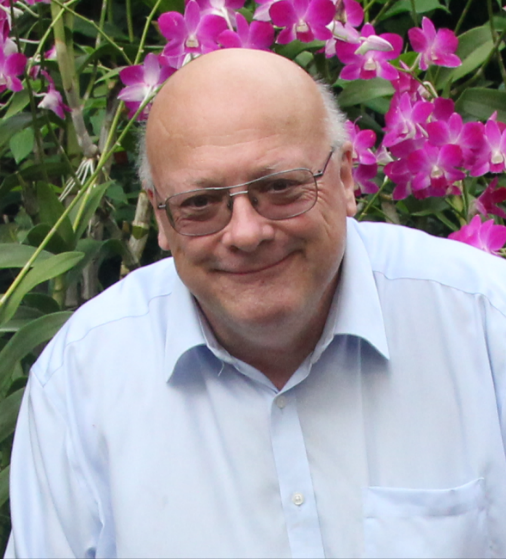
Richard Compton, University of Oxford, Great Britain.
Compton is Aldrichian Praelector Emeritus and Professor Emeritus in the Department of Chemistry, Oxford, Great Britain and Visiting Professor of Electrochemistry at the Hong Kong Polytechnic University. He was educated at Oxford University and Imperial College London and has published in excess of 1650 papers (h =123; with more than 67,000 citations excluding self-cites) and 7 books. He has co-written a trilogy of graduate texts (World Scientific Press) including Understanding Voltammetry (with C E Banks, 4th edition 2025, translated into Russian and Chinese) and Understanding Voltammetry: Simulation of Electrode Processes (with E Kaetelhoen, E Laborda and K Ward 2nd edition, 2020). Compton is a Fellow of the International Society of Electrochemistry (ISE) with broad interests in electrochemistry and electroanalysis. Recent work has focussed on the application of electrochemical methods for the detection of plankton and monitoring ocean health. He received the Grotthuss Medal of the Theodor von Grotthuss foundation in 2021. Compton was the Founding Editor of the journal Electrochemistry Communications (Elsevier) and Editor in Chief until 2023. He is currently the joint Editor-in-Chief of Current Opinion in Electrochemistry. He has recently been awarded the 2025 Frumkin Medal of the ISE.
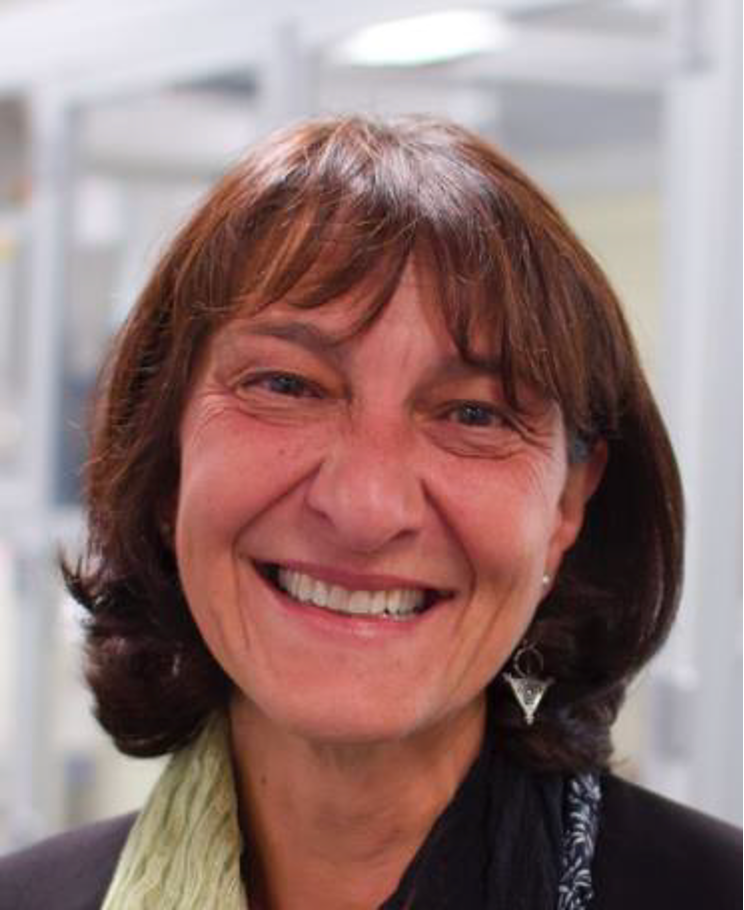
Maria Forsyth, Deakin University, Australia. Maria Forsyth AM ATSE (Australian Academy of Technology and Engineering), FAA (Fellow of the Australian Academy of Sciences), is a visiting Professor and Deakin Distinguished Professor at Deakin University and an Ikerbasque Professorial Fellow at the University of the Basque Country, Spain. Professor Forsyth has worked at the forefront of energy materials research and has consistently made breakthrough discoveries in novel electrolytes. Her research has focused on understanding the phenomenon of charge transport within these materials and at metal/electrolyte interfaces present in all electrochemical applications. She has supervised over 100 PhD students and is a co-author of more than 880 journal and conference publications. Professor Forsyth is a director at TMPR Consulting and co-founder/director of DyNati Energie, a recent energy technology startup.
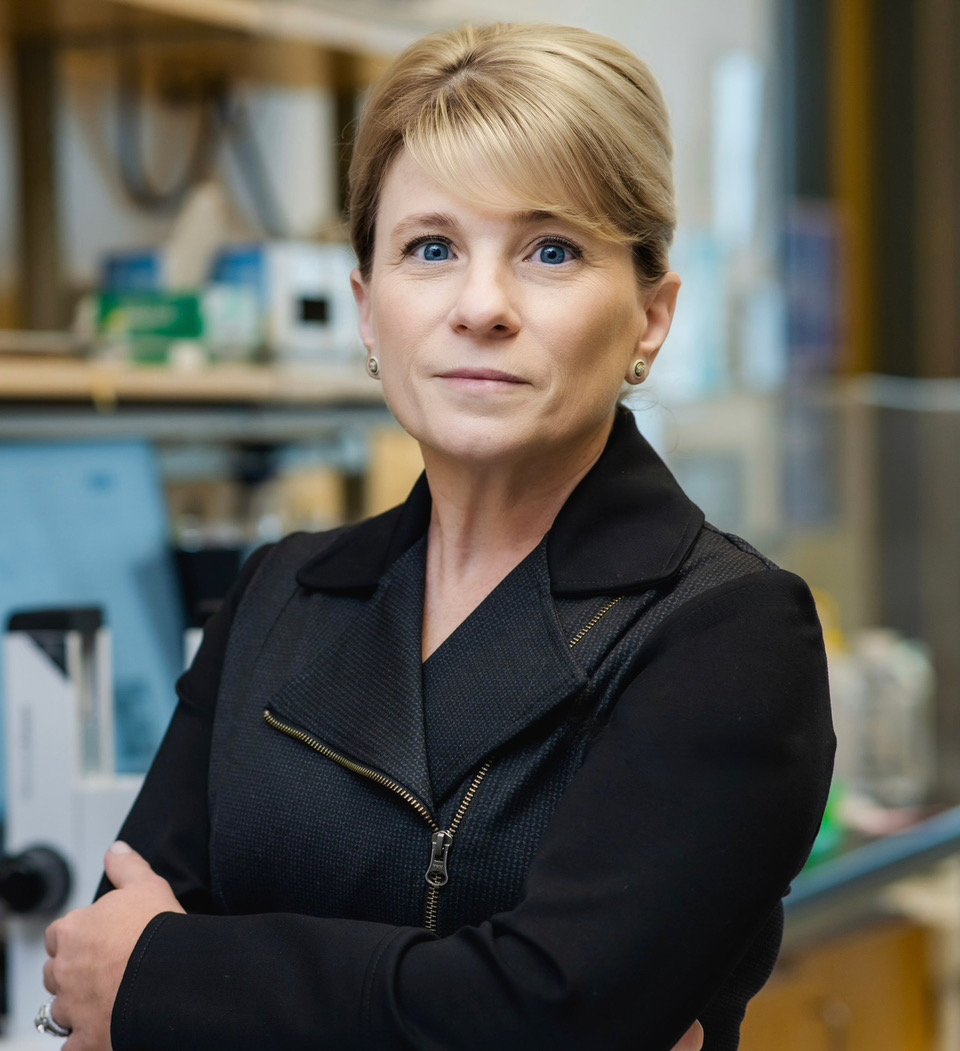
Shana Kelley, Northwestern University, USA. Dr. Shana Kelley is the President of the Chan Zuckerberg Biohub Chicago and the Neena B. Schwartz Professor at Northwestern University in the Departments of Chemistry, Biomedical Engineering, and Biochemistry & Molecular Genetics. The Kelley research group has pioneered new methods for tracking molecular and cellular analytes with unprecedented sensitivity. Dr. Kelley’s work has been recognized with the ACS Inorganic Nanoscience Award, the Pittsburgh Conference Achievement Award, the Steacie Prize, an Alfred P. Sloan Research Fellowship, a Camille Dreyfus Teacher-Scholar Award, an NSF CAREER Award, a Dreyfus New Faculty Award, and she was also named a “Top 100 Innovator” by MIT’s Technology Review. Kelley is also a Guggenheim Fellow, a Fellow of the Royal Society of Canada, the Canadian Academy of Health Sciences, and the American Institute of Biological and Medical Engineering. She is an elected member of the American Academy of Arts and Sciences and the National Academy of Inventors. Her work is extensively cited, with over 80 papers cited more than 80 times. Kelley is an inventor on more than 50 patents issued worldwide. She is the founder of four life sciences companies: GeneOhm Sciences (acquired by Becton Dickinson in 2005), Xagenic Inc. (acquired by General Atomics in 2017), CTRL Therapeutics (founded in 2019), and Arma Biosciences (founded in 2021).
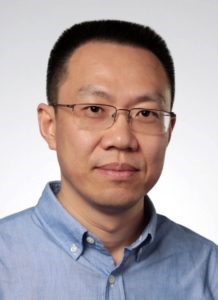
Yi-Tao Long, Nanjing University, China.
Yi-Tao Long is a Professor at the School of Chemistry and Chemical Engineering, Nanjing University. He earned a B.Sc. (1989) from Shangdong University and a Ph.D. (1998) from Nanjing University. After two years of postdoctoral study at Heidelberg University, he worked as a Research Associate at the University of Saskatchewan and the University of Alberta in Canada, and as an Associate Specialist at the University of California, Berkeley. He returned to Nanjing University in 2019 after spending 12 years as a full professor at East China University of Science and Technology.
His main research focuses on electrochemistry at nanoconfinement, including nanopore electrochemistry for single-molecule analysis, nanospectroelectrochemistry for biointerphase studies, and nanoelectrochemical instruments for life sciences. Professor Long has published over 400 peer-reviewed scientific journal papers, 5 books or chapters, and 4 PCT patents. He has authored more than 400 articles in journals such as Nat. Nanotechnol., Nat. Chem., Nat. Protoc., Nat. Methods, and others, with over 20,000 citations and an H-index of 84. He currently serves as an Associate Editor for Chemical Science and as a member of the editorial or advisory boards for Chemical Reviews, ChemElectroChem, Research, Theranostics, and Microchimica Acta. He is a Fellow of the Royal Society of Chemistry (RSC), the Chinese Chemical Society (CCS), and the International Society of Electrochemistry (ISE). He was an honorary visiting professor at the University of Birmingham (2014-2020) and a visiting professor at the University of Bath (2011-2016). He received the CCS Liang Shuquan Award for Fundamental Research in Analytical Chemistry (2018) and the RSC Faraday Medal (2023). He serves on the RSC Faraday Council committee and has cochaired several RSC Faraday Discussions on Electrochemistry (2018, 2021, and 2024).
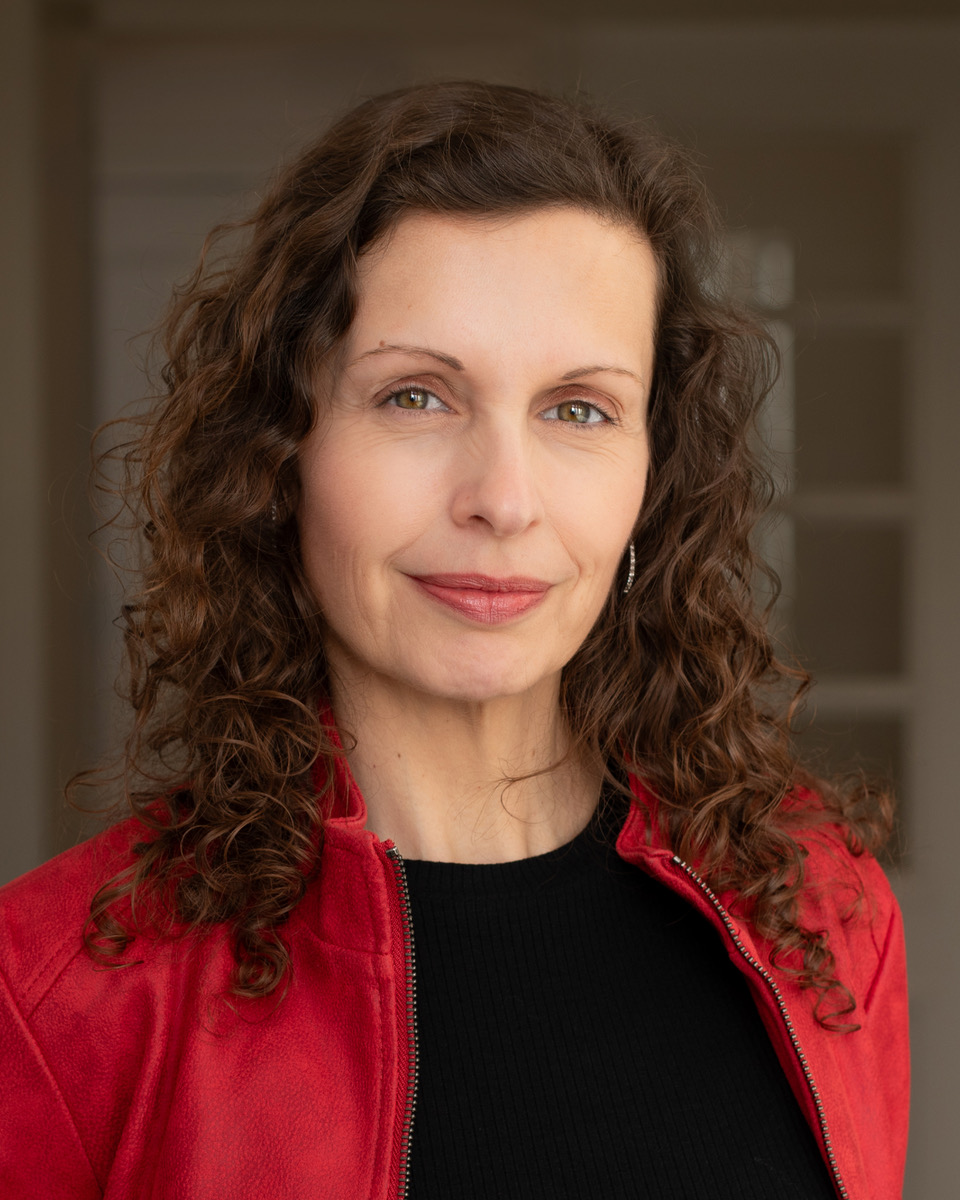
Beatriz Roldán Cuenya, Fritz Haber Institute, Germany.
Prof. Dr. Beatriz Roldán Cuenya is currently the director of the Interface Science Department and interim director of the Inorganic Chemistry Department at the Fritz Haber Institute in Berlin, Germany. She began her academic career by earning her MSc in Physics in Spain in 1998 and her PhD in Physics in Germany in 2001. Her postdoctoral research took her to the Department of Chemical Engineering at the University of California, Santa Barbara, USA. In 2004, she joined the Department of Physics at the University of Central Florida as an assistant professor and became a full professor in 2012. In 2013, she moved back to Germany and became a chair professor of Solid State Physics at Ruhr-University Bochum. She then joined the FHI in 2017.
Prof. Dr. Beatriz Roldan Cuenya has authored 250 peer-reviewed publications, six book chapters, and six patents. She has supervised 77 postdoctoral researchers and 37 PhD students. She serves on the editorial boards of the Journal of Catalysis and Chemical Reviews. She is a member of the Academia Europaea and the Germany National Academy of Sciences Leopoldina. Recently, she received the ACES – Margarita Salas Award from the Association of Spanish Researchers in Sweden and the Margarita Salas Foundation. She was awarded the Manchot Research Professorship from TU Munich (2023), the 2022 Paul H. Emmet Award from the North American Catalysis Society, the Röntgen Medal (2022), the Faraday Medal from The Electrochemistry Division of the UK Royal Society of Chemistry (2022), the AVS Fellow Award (2021), and the International Society of Electrochemistry-Elsevier Prize for Experimental Electrochemistry (2021).
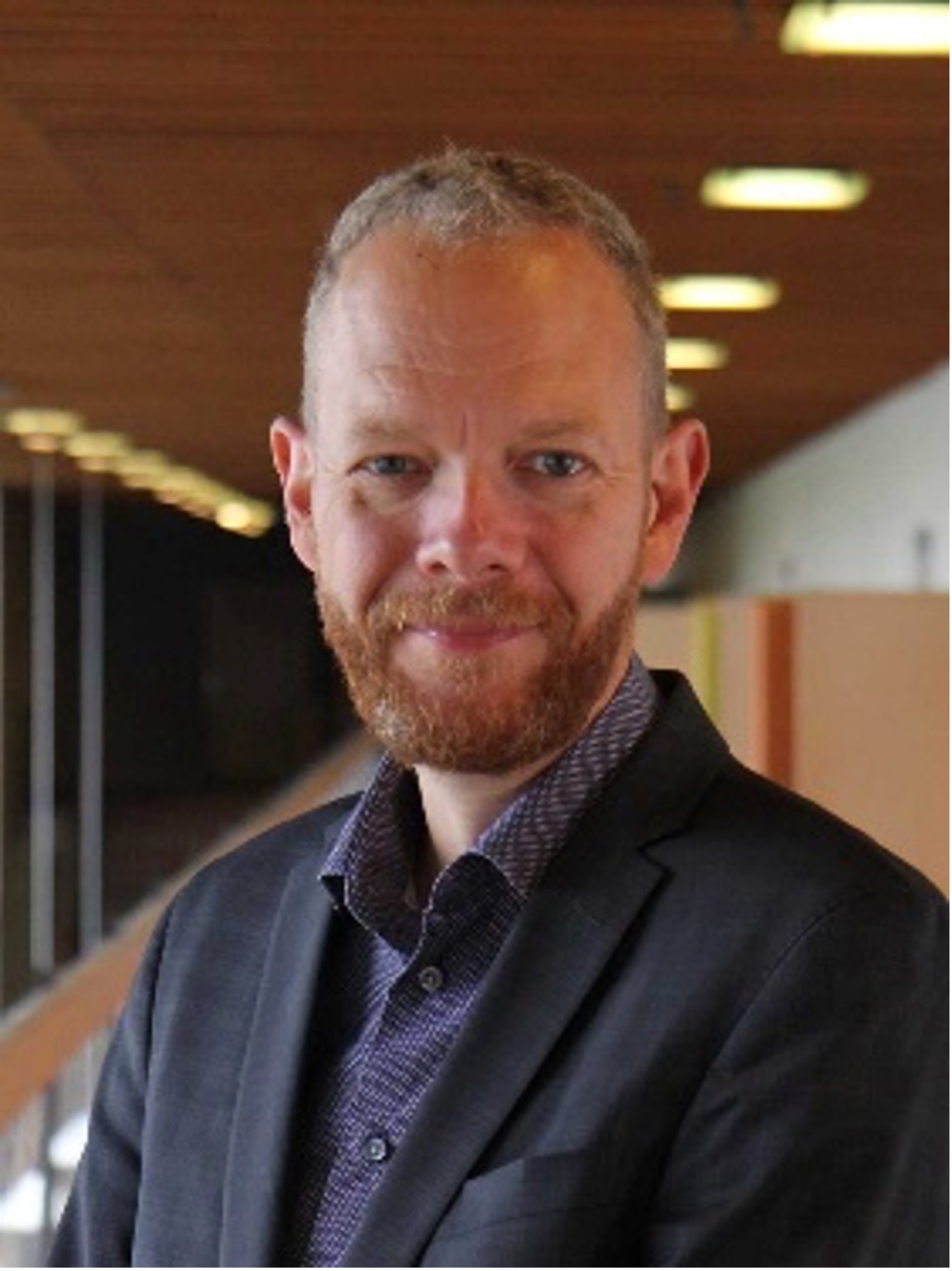
Jan Rossmeisl, University of Copenhagen, Denmark.
Jan Rossmeisl is a professor in the Department of Chemistry at the University of Copenhagen. He joined the university in 2015 from a position as an associate professor at the Danish Technical University. Since 2020, he has been heading a Danish National Research Foundation, Center of Excellence, the Center for High Entropy Alloy Catalysis, and in 2024, he received an ERC synergy grant along with three others. Jan is coauthor of more than 250 papers and is listed among the Clarivate highly cited researchers. Jan Rossmeisl is a Fellow of the Royal Society of Chemistry.
His research focuses on how theory and simulations can provide real and valuable insights into electrochemical reactions. Jan has a close and integrated collaboration with experimentalists, sometimes in a supporting role and sometimes in a leading role. He was an early adopter of quantum mechanical simulations in electrocatalysis. He co-developed the computational hydrogen electrode in 2003, a method that includes the potential by referencing protons and electrons to hydrogen molecules. Despite its simplicity, it has become a staple in the field. His contributions extend to studying vital electrocatalytic systems, including the oxygen evolution reaction crucial for water electrolysis and oxygen reduction. His early papers on oxide catalysts and the universal picture of the reaction have set the benchmark for researchers in the field. Notably, Jan’s exploration of scaling relations in electrocatalysis has provided a lasting framework for understanding catalytic activity trends among different surfaces. This fundamental contribution helps calculate the efficiency limits of catalytic reactions. In 2020, Jan and co-workers won a Danish National Research Foundation center of excellence, the Center for High Entropy Alloy Catalysis, based on the idea of utilizing high entropy alloys as catalysts. High Entropy Alloys represent a paradigm shift in catalysis, yielding not only intriguing catalyst materials but also profound insights into catalysis.
Tutorials
Tutorial 1
Continuous monitoring electrochemical sensors
Kevin W. Plaxco
Distinguished Professor of Chemistry and Biochemistry, BioEngineering, and Quantitative Biology
University of California, Santa Barbara
Santa Barbara, CA 93016
Tutorial 2
Electrifying Organic Synthesis
Prof. Dr. Siegfried R. Waldvogel
Max Planck Institute for Chemical Energy Conversion
Department of Electrosynthesis
Stiftstraße 34-36
45470 Mülheim an der Ruhr
Abstract Submission
Abstract submissions are invited for both oral and poster presentations. All abstracts must be submitted via the online submission system.
Please be aware that not more than two (2) abstracts can be presented by a registered participant.
(Either one accepted oral and one poster presentation or two poster presentations.)
The abstract should be in English and not exceed one page (including figures, tables and references) using the abstract template form which can be downloaded below. No proofreading will be carried out, and no correction will be possible after the submission. It is the responsibility of the authors to ensure that their text does not contain typos or grammatical errors.
Notification of Acceptance
All submitted abstracts will be reviewed by the Scientific Program Committee. A notification of acceptance will be sent by e-mail to the presenting authors.
All presenting authors of accepted abstracts are expected to register. Abstracts without a registered presenting author will be withdrawn from the program.
Withdrawing Abstracts
If you must withdraw an abstract, please notify the ISE Office events@ise-online.org.
Abstract template
Download template Right button click, “Save target as…”
Event registration for participants
Registration opens on 10 March 2026.
Please return to this page after that date to register.
Visa invitation letter request form
If you would like to receive an e-mail (on letterhead) of your letter of invitation, please fill out the form below.
Upon receipt of your email, you must take it to your nearest consulate or embassy to begin the visa application process.
We offer this service as a courtesy, however, it does not constitute an application for a Visa and we cannot guarantee that it will enable you to obtain a Visa.
Please enter your name and mailing address as it should appear on your letter and address label and double-check all information since errors can delay the visa application process and delivery of your hardcopy and e-mail.
Registration Fee Waiver
The Fee-Waiver Program is intended to facilitate participation at Annual or Topical Meetings by scientifically and/or technically qualified scientists and engineers with financial hardships that may limit their ability to attend. Generally fee-waivers will be awarded to persons from financially disadvantaged countries.
The fee-waiver program will be governed by the following rules:
1. A maximum of 10 waivers of registration fees for the Annual Meeting and 5 waivers for the Topical Meeting may be granted.
2. Selection of recipients is limited to ISE members in good standing. The criteria for selection include scientific merit (based on the submitted abstract and application) and demonstrated financial need. Preference will be accorded to persons from countries recognized by the ISE to be financially disadvantaged.
3. The fee-waiver program will be advertised on the web site of each meeting.
4. An application for fee waiver must be sent to the ISE office no later than 1 month before the deadline for advance (early registration, reduced fee) registration.
5. Waiver applications received after the deadline will not be considered.
6. The waivers are decided by the whole Executive Committee, taking into account the criteria described in point 2 and any other relevant considerations. The decision will be communicated by email to all applicants (successful and unsuccessful) by the ISE Office at least two weeks before the deadline for advance registration.
7. In order to receive the waiver, the successful applicant must pre-register for the conference and pay the registration fee by the early registration date to ensure that an oral or poster presentation is not deleted from the program. The recipient of the waiver will receive reimbursement for the paid registration fee at the conference registration desk. If the recipient is unable to pre-register, which also means forfeiting an oral presentation, the waiver will be provided only when the recipient registers onsite at the conference.
8. The waivers are valid only for the successful applicant and may not be transferred to another participant.
9. No member may obtain waivers for both the Topical Meeting and the Annual Meeting in the same year.
10. Only applications prepared using the Application Form will be considered (Right button click, “Save target as…”).
Accommodation
Being a large city, Sydney has over 40,000 hotel rooms with all major hotel chains represented. AirBnB also operates extensively within Australia. Within a
10-minute walk of the Convention Centre are 43 hotels with 5 hotels directly within Darling Harbour including Novotel, Sofitel, a couple of boutique hotels and a hostel.

Top things to do in New South Wales
Looking for all the best activities, tours and other things to do in New South Wales? Check out our extensive range of top experiences here!


Exhibit at the 77th Annual Meeting of the International Society of Electrochemistry
This ISE Annual Meeting in Sydney, Australia will bring together internationally recognised scientists. Typically the expected delegate number for ISE Annual meetings will be about 2000 delegates.
For more information please download the
ISE Exhibition and Sponsorship TM AM 2026
Satellite Meetings
2nd Australian Future Sensing Conference
https://www.australianfuturesensing.net
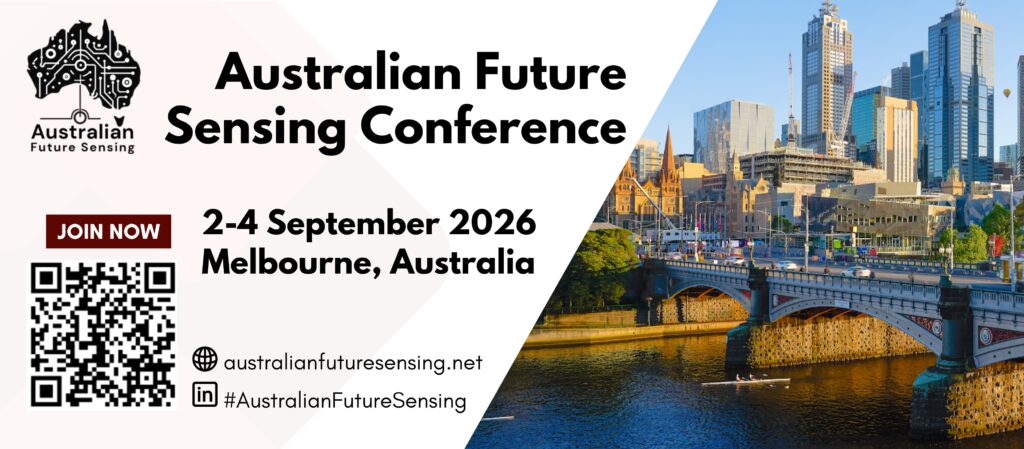
Homage to Justin Gooding
Homage to Justin Gooding, a day conference to celebrate the 60th Birthday of Scientia Professor Justin Gooding
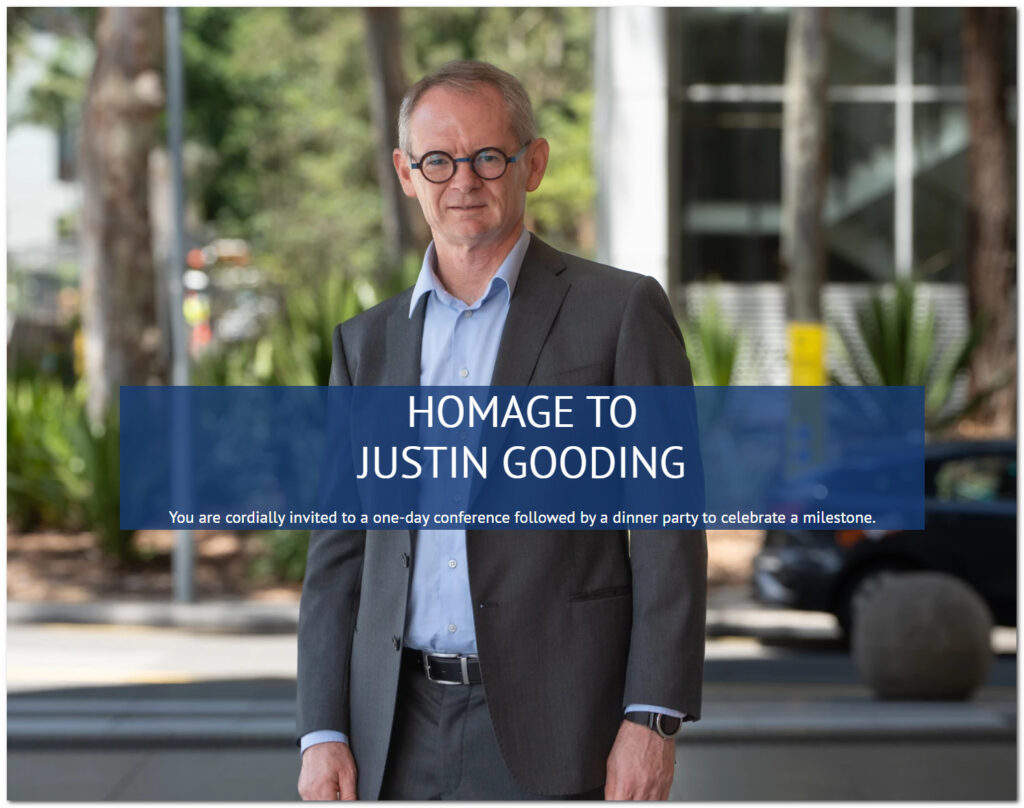
https://www.justingoodingconference.com/
Workshop on Good practices for experimental testing of CO2 and water electrolyser materials, cells, and systems
The ISE 2026 Satellite Workshop on Good practices for experimental testing of CO2 electrolyser materials, cells, and systems is hosted by the ARC Centre of Excellence for Green Electrochemical Transformation of Carbon Dioxide (GETCO2).
The Satellite Workshop is scheduled in conjunction with the 77th Annual Meeting of the International Society of Electrochemistry taking place in Sydney 6–11 September 2026.
Workshop details:
- Date: Friday 4th September 2026
- Venue: The University of Queensland, St Lucia Campus, Brisbane, Queensland
- Registration deadline: 30 June 2026
Scope:
Guidelines for technoeconomic analysis and life cycle assessment of electrolysis processes
Experimental methods for testing catalysts, gas diffusion electrodes, and membranes for electrolysers
Methods for characterisation of materials and devices for water electrolysers and CO2 electrolysers, including advanced imaging and operando spectroscopy methods
